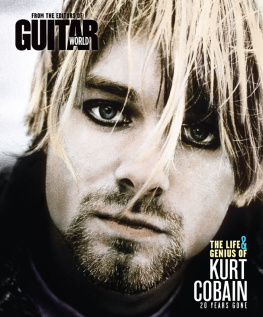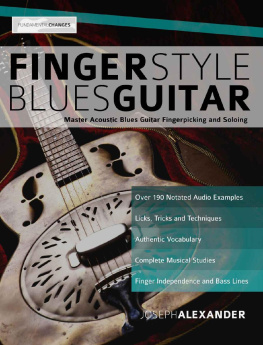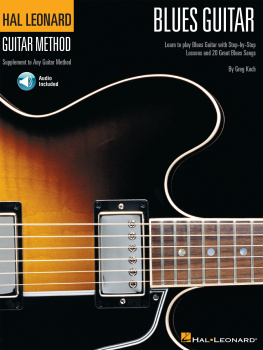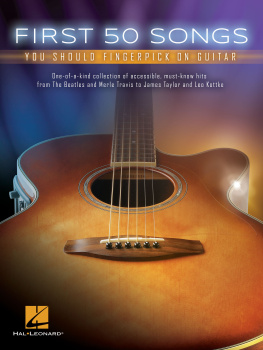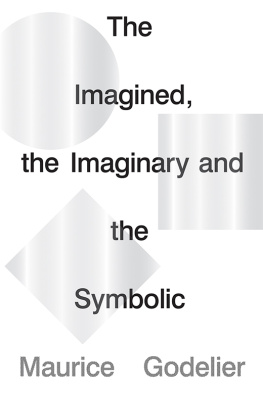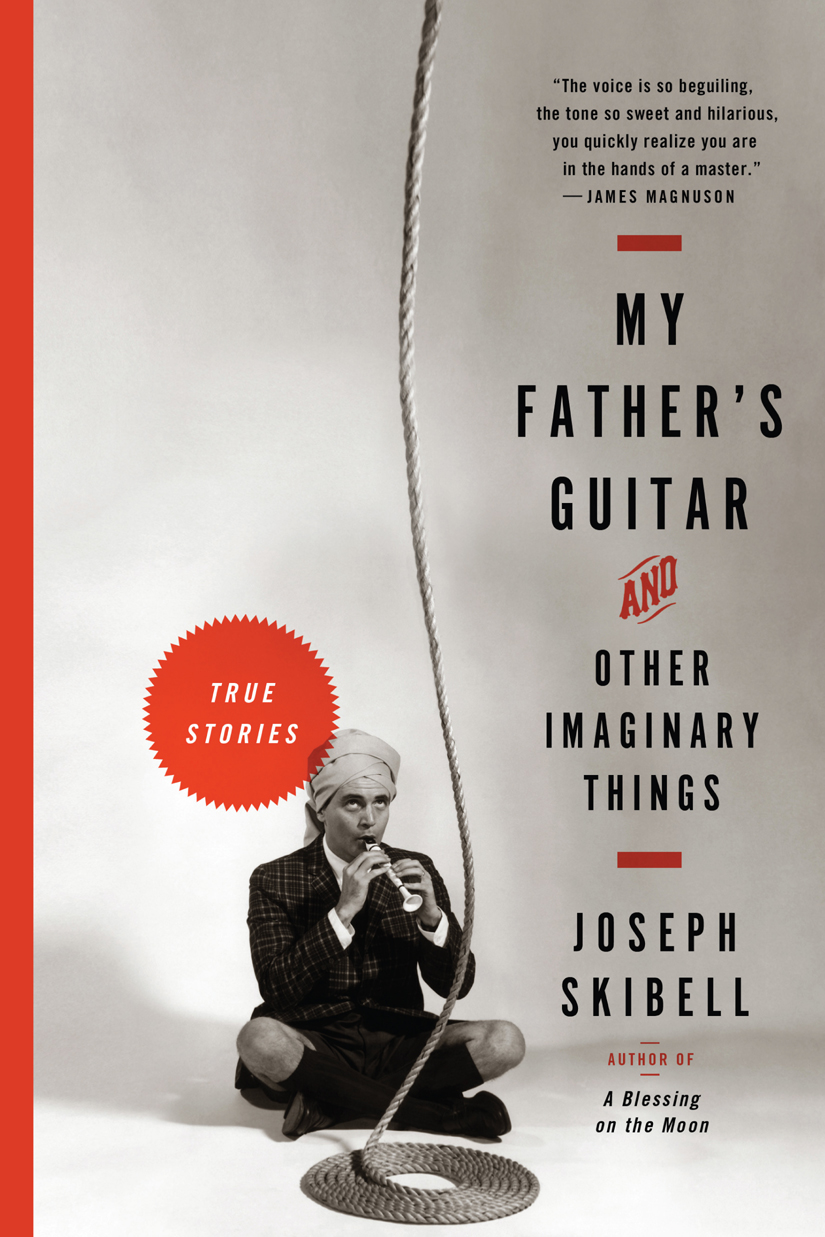My Fathers Guitar & Other Imaginary Things
TRUE STORIES
JOSEPH SKIBELL

ALGONQUIN BOOKS OF CHAPEL HILL 2015
ALSO BY JOSEPH SKIBELL
A Blessing on the Moon
The English Disease
A Curable Romantic
Six Memos from the Last Millennium: A Novelist Reads the Talmud
Though these stories are trueeverything that happens in them happened in actual lifeIve changed the names of a few of the people who appear in them. Ive done this sometimes at their request and sometimes in gentlemanly deference to old lovers and friends. Also, as a work of memory, this book is subject to the distortions, incorrections, and elisions of all retrospection.
in memory of my father,
IRVIN ALFRED SKIBELL,
and for
SPIDER JOHNSON
&
MEREDITH MITCHELL,
with gratitude
for the guitar
and the other imaginary things
At the moment the music began
and you heard the guitar player starting to sing
you were filled with the beauty that ran
through what you were imagining.
JACKSON BROWNE , Linda Paloma
CONTENTS
MY FATHERS GUITAR & OTHER IMAGINARY THINGS
It all started about five years ago when I received a call from a colleague. Wed done a bit of work together, planning a new major for the college where we teach, and wed been compensated for this work with a small bonus to our travel-and-research funds. My colleague was calling to alert me to the factsomething hed only then discoveredthat if these funds werent spent by the end of that day, theyd be forfeited and returned to the college.
I gathered up all the work-related receipts I could find, but when I totaled them up, I still had $177 dollars left, and so I did the only thing I could think to do, the only rational thing a person in my situation might do: I went down to my local Guitar Center, flagged down a salesman, told him I had $177 to spend before midnight, and asked him if hed be willing to part with a Martin Backpacker for that precise amount.
A Martin Backpacker, if youve never seen one, is a small broom-shaped guitar thats light enough to be carried into the woods on a backpacking trip, if you were so inclined. Its also, according to the Martin catalog, the first guitar ever sent into outer space.
The sales guy told me hed be delighted to sell me the guitar for that price and he went into the back to get one.
This made me extraordinarily happy for two reasons. First, though I started playing at nine years old, I hadnt gotten a new guitar since I was fourteen. Id been playing less and less over the years, and I was unprepared for the sense of a renewed love affair a new instrument brings with it. Secondly, I retained in my memory a sharply etched image of my father, leaning his large body against the counter of Harrod Music Co. in Lubbock, Texas, bargaining with Clyde, the manager there, over the blue electric Fender Mustang he was buying to replace the clunky Fender acoustic hed originally brought home for me after Id mentioned to him that I wanted to learn how to play the guitar.
Big and cumbersome, that acoustic Fender was too difficult for me to play. The neck was thick and beefy, and the strings were so high you could have hung laundry from them.
As a kid, I was mortified by my fathers bargaining. Everywhere else, when you bought something, you paid what they asked for it, but Dad was a businessman, he was a merchant, he understood about markup. Still, I was afraid he might offend Clyde, that this back-and-forthing of theirs might end in a stalemate or, worse, an argumentDad had an eruptive, unpredictable temperand Id lose not only the guitar but Clydes affection, which would mean having to go elsewhere for my lessons.
My teacher at Harrods was a lanky hippie iconoclast named Spider Johnson. He was a liberating presence in my young life, and I didnt want to lose contact with him.
I was worried, also, that all this handln might seem too Jewish for Clyde or for Mr. Harrod, the patrician owner of the shop. The founding conductor of the Lubbock Symphony Orchestra, Mr. Harrod saw to the violins, while Clyde handled the guitars.
But Clyde, it turned out, was happy for the sale, as was the guy at Guitar Center thirty years later, as was I in both cases. Im sure it had more to do with my father than with the money, but the forty or so bucks the Guitar Center guy was willing to knock off the Backpacker left me feeling inordinately potent as a man.
I brought the little Martin home, and for my birthday, my wife, Barbara, gave me a couple of songbooks containing hits from the 1920s and 30s, and I loved nothing better than to sit at our kitchen table late into the night, playing my little broom-shaped guitar and singing songs like Aint Misbehavin, Bye Bye, Blackbird, and California, Here I Come!
MY FATHER WAS hospitalized a year or so after I bought the Backpacker. He was living in Oklahoma City at the time with his second wifemy mother had died years beforeand my brother and sisters and I each received a call telling us wed better get up there to see him. No one expected him to leave the hospital: his kidneys were shot and he had a host of other medical concerns.
His organs are just plumb wore out, his nephrologist told me.
As soon as we all arrived, Dad went into a coma. At one point, there was even a Code Blue. The machines in his ICU room started whirring. The staff rushed in and pulled the curtains. The hospital chaplain showed up, a fretful-looking woman in a boxy skirt set.
May I sit with you? she asked each of us in turn, inflecting the verb somehow with overtones of Christian sodality.
No thanks, we each said.
I have to say, she seemed relieved. Clutching her files to her chest, she sat down, and she disappeared when no one was looking.
As for my sisters and brother and me, we all braced ourselves and waited for our father to die.
BUT DAD DIDNT DIE.
Contrary to all expectations, he came out of his coma. Eventually well enough to leave the ICU, he was furloughed to an ordinary hospital room, and though he spent nearly sixty days as an inpatient, he was ultimately released.
During those sixty days, whenever I went to visit him, I brought the little Backpacker along. We didnt have a lot of common interests, my father and I, our conversation was often halting and difficult, but music was something we both loved, and Id sit by his bedside and play for him. It helped to pass the hours for both of us, and the odd-shaped guitar proved a useful conversation piece with the nurses.
I DONT KNOW what was going on in my fathers marriage, but when he left the hospital, he no longer seemed welcome at home. He ended up in Dallas, living in Mrs. Rudds condominium. Mrs. Rudd was my uncle Richards mother-in-law. Too frail at ninety-something to travel from her home in Wichita, she no longer used the place, and Dad moved in in a quiet violation of the condo boards rules, which forbade any and all subletting.
I continued bringing the little Martin along whenever I visitedit was so light and easy to packand on one occasion, we all sat together as a family in Mrs. Rudds living room, my brother-in-law Alan and I taking turns on the guitar. Dad joined in, singing old cowboy and Sammy songs. He seemed to enjoy himself, and one day he told me he thought maybe hed buy himself a guitar, take a few lessons. Why not? He was retired and living alone with a pair of alternating caregivers. He had the time, and he asked me for advice on what to buy.


